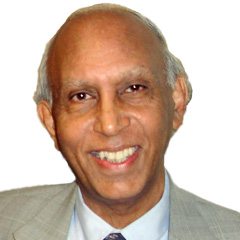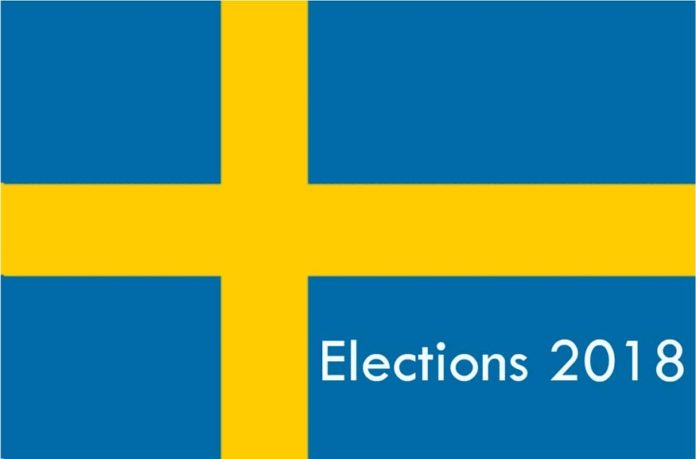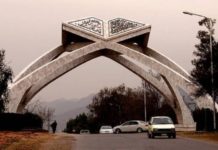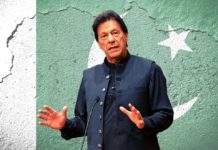On 9 September 2018, Sweden will go to the polls. The country is a constitutional monarchy, which adheres to the parliamentary system of government. It has a unitary system of government and a unicameral legislature with 349 members elected through universal adult franchise. The total population of Sweden is 9.8 million. Native-born Swedes constitute the overwhelming majority of the population but about 15 percent are born abroad.
Once one of the poorest countries of northern Europe from where nearly one-fourth of the population emigrated to North America in the 19th century, Social-Democratic ideological hegemony and rule extending almost over a century transformed it into the world’s greatest welfare state. In recent years, an anti-immigration movement has been gaining ground significantly and the Sweden Democrats (as against Social Democrats) are now the third largest party, enjoying the support of some 20 percent of the voters. A very large influx of humanitarian and political refugees, as well as economic migrants from the Middle East and Africa have understandably created cultural tensions including some incidents of terrorism. Political Islam is seen as a veritable threat to the secular and very liberal life style of Swedes.
Traditionally, the main ideological divide has been between the Socialist Left and the Bourgeois Right, consisting of two blocs, while the anti-immigration Sweden Democrats are rejected by both blocs on grounds that they do not believe in a common humanity even if they dissociate themselves formally with racism.
The Left bloc comprises the Social-Democratic Party, the Miljo or Green Party and the Vänster or Left party. The Right Bloc consists of the Moderate or Conservative Party, the Liberal Party, the Farmers’ Party and the Christian Democrats. The Farmers’ Party and the Christian Democratic Party have female leaders while the Green Party has one female and one male spokesperson instead of a leader.
With time,the new arrivals in Sweden will change and adopt progressive attitudes and values. It may not happen tomorrow, but the next generation, which is educated and groomed in Sweden, will integrate with mainstream Swedish society satisfactorily.
At present, the opinion polls indicate that both blocs are evenly balanced. This means that the Sweden Democrats can make and unmake a government from the outside unless the bloc politics system is abandoned. The Sweden Democrats find greater affinity with the Conservative and Christian Democratic parties, but both refuse to work with them because of their anti-immigration hostility.
Swedish elections are preceded by several debates and discussions between leaders on television moderated by competent journalists. These are most informative and vividly show the very civilized nature of Swedish society and politics. By no means is anyone spared by the programme anchors, and the leaders question one another with absolute candour while adhering to decency and politeness.
The leader of the Sweden Democratic Party Jimmie Åkesson is a very effective debater and it must be admitted that his warnings that immigration from outside Europe threatens Swedish values have had a profound impact on not only voters but all other parties. The Social Democrats (26 percent) and the Conservatives (22 percent) both agree on regulating refugee flows strictly, because without jobs and places to live, the welfare expenditure of the state soars too high and plays into the hands of leaders such as Jimmie Åkesson. The Liberal Party and Christian Democrats too are agreed, while the Green Party and the Left Party (whose roots are in the former Communist Party) want to maintain a generous and liberal immigration policy.
A very interesting feature which was introduced this time was giving every leader fifteen minutes to address people on television about their vision of Sweden by 2028 — that for the next 10 years. Those eight 15-minute talks on television brought forth deeply ingrained respect for labour and hard work. The leader of the Conservative Party began by narrating that he came from a very humble background. His grandmother was a cleaner and the rest of the family was also poor. He was the first one in the family who received a university education. The leader of the Liberal Party informed that both his parents were textile workers. Both put a high premium in education for everyone as a fundamental human right, emphasizing that their social mobility and political leadership derived from the excellent educational system of Sweden.
PM Stefan Löfven narrated that he grew up in a state foster home. Without such help, he would have had no one to help him get going in life. For him it was important that the Swedish State was strong and effective so that every child gets a fair chance to find opportunities for progress on a level playing field.
Jimmie Åkesson underscored too that he believed in the welfare system as much as others, but he was against unregulated immigration which creates a large number of people who live on dole and never work besides all the tensions created by Muslim religious schools practising segregation, women wearing the Burqa and Nikab and the child marriages, forced marriages and honour killings that happen in Muslim communities. Such reasoning attracts apprehensive Swedes from both the left and right.
What was common to all the 10-year future visions was the emphasis on justice, equality of opportunity and the maintenance and strengthening of the welfare system and fighting global warming and climate change through drastic cut in the use fossil fuels (petroleum and coal mainly).
As a political scientist who himself benefitted greatly from the Swedish welfare system and completed my PhD through a generous scholarship,I am fully aware of the fact that among Muslims many are against outmoded and oppressive norms and practices prevalent among their co-religionists. Most of the people who conform to these practices have little or no education. And indeed, political Islam sponsored by Iran and Saudi Arabia and exploited by the United States and the UK have done great harm to Muslims and to the world.
However, I share the optimism that with time these new arrivals in Sweden will change and adopt progressive attitudes and values. It may not happen tomorrow, but the next generation which is educated and groomed in Sweden will integrate with mainstream Swedish society satisfactorily, provided law and order is maintained, organised crime defeated and broken up and the school system retains high standards.
It is imperative that the next Swedish Government which will be elected on September 9, 2018 ensures that equality between men and women and the freedom to live life as one pleases in accordance with law, is effectively protected against reactionary cultural and religious values. The Swedish model is universal, inclusive and emancipatory. Religious freedom should be a self-evident right, but it should be enjoyed in the private sphere.
About the Author:

Dr. Ishtiaq Ahmed is Professor Emeritus of Political Science, Stockholm University; Visiting Professor Government College University and Honorary Senior Fellow, Institute of South Asian Studies, National University of Singapore. He can be reached at billumian@gmail.com








